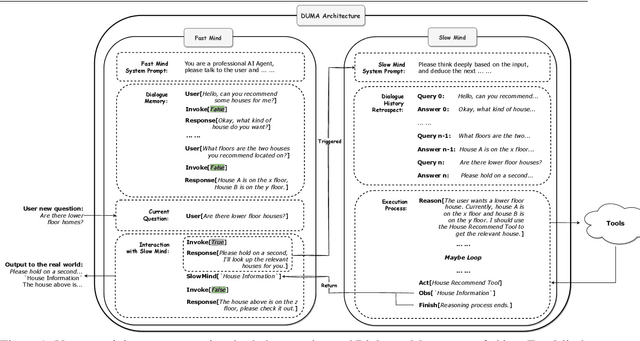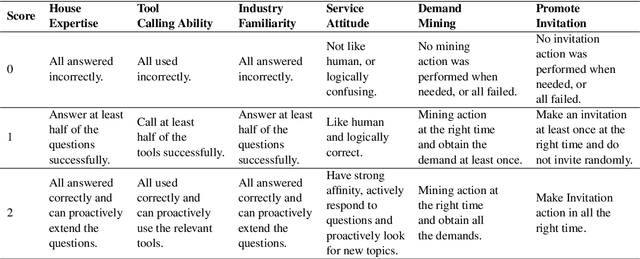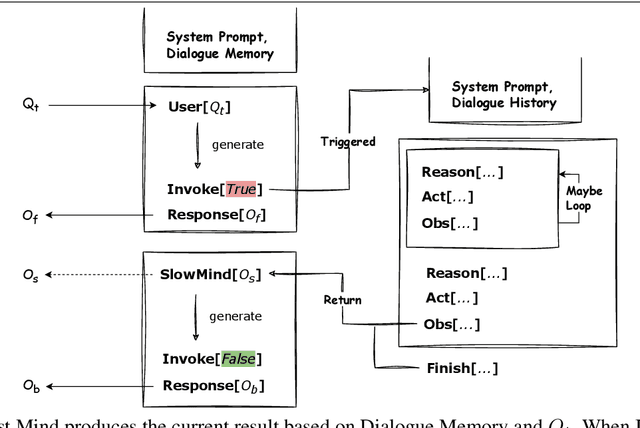Yaxuan Liu
DUMA: a Dual-Mind Conversational Agent with Fast and Slow Thinking
Oct 30, 2023



Abstract:Inspired by the dual-process theory of human cognition, we introduce DUMA, a novel conversational agent framework that embodies a dual-mind mechanism through the utilization of two generative Large Language Models (LLMs) dedicated to fast and slow thinking respectively. The fast thinking model serves as the primary interface for external interactions and initial response generation, evaluating the necessity for engaging the slow thinking model based on the complexity of the complete response. When invoked, the slow thinking model takes over the conversation, engaging in meticulous planning, reasoning, and tool utilization to provide a well-analyzed response. This dual-mind configuration allows for a seamless transition between intuitive responses and deliberate problem-solving processes based on the situation. We have constructed a conversational agent to handle online inquiries in the real estate industry. The experiment proves that our method balances effectiveness and efficiency, and has a significant improvement compared to the baseline.
The First Comprehensive Dataset with Multiple Distortion Types for Visual Just-Noticeable Differences
Mar 08, 2023



Abstract:Recently, with the development of deep learning, a number of Just Noticeable Difference (JND) datasets have been built for JND modeling. However, all the existing JND datasets only label the JND points based on the level of compression distortion. Hence, JND models learned from such datasets can only be used for image/video compression. As known, JND is a major characteristic of the human visual system (HVS), which reflects the maximum visual distortion that the HVS can tolerate. Hence, a generalized JND modeling should take more kinds of distortion types into account. To benefit JND modeling, this work establishes a generalized JND dataset with a coarse-to-fine JND selection, which contains 106 source images and 1,642 JND maps, covering 25 distortion types. To this end, we proposed a coarse JND candidate selection scheme to select the distorted images from the existing Image Quality Assessment (IQA) datasets as JND candidates instead of generating JND maps ourselves. Then, a fine JND selection is carried out on the JND candidates with a crowdsourced subjective assessment.
 Add to Chrome
Add to Chrome Add to Firefox
Add to Firefox Add to Edge
Add to Edge